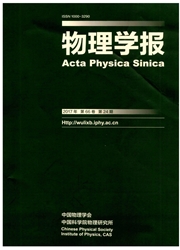

 中文摘要:
中文摘要:
设计制作了一种具有非对称弯曲微流道结构的微流控芯片,搭建实验平台定量表征聚苯乙烯粒子和血细胞沿流道的动态惯性聚焦过程,并系统研究了流体流速和粒子尺寸对粒子聚焦特性的调控机理.通过分析粒子荧光图谱和对应量化强度曲线,将粒子沿流道长度的横向迁移过程分为形成聚焦和平衡位置调整两个阶段,指出在整个聚焦过程中具有小曲率半径的流道结构起主导作用.根据全流速段内粒子聚焦特性的演变,重点分析潜在惯性升力和Dean曳力的竞争机制,提出了阐述粒子聚焦流速调控过程的三阶段模型.进一步比较两种尺寸粒子聚焦位置和聚焦率随流速与流道长度的变化规律,发现大粒子具有更好的聚焦效果和稳定性,且两种粒子的相对位置可通过流速进行调整.最后,通过分析血细胞在非对称弯流道中的横向迁移特性,验证了粒子惯性聚焦机理在复杂生物粒子操控方面的适用性.上述结论为深入研究微流体环境下粒子的运动特性以及开发微流式细胞术等临床即时诊断器件提供了重要参考.
 英文摘要:
英文摘要:
In this paper,an asymmetrically curved microchannel device is designed and fabricated to quantitatively characterize the dynamic inertial focusing process of polystyrene particles and blood cells flowing along the channel.The experimental investigations are systematically carried out to probe into the regulation mechanisms of flow rate and particle size.Specifically,based on the particle fluorescent streak images and the corresponding intensity profiles at specific downstream positions,the lateral migration behaviors of particles in the mirochannel can be divided into two stages:the formation of focused streak and the shift of focusing position.It is also found that the channel structures with small radii are dominant during the whole inertial focusing process.A three-stage model is then presented to elucidate the flow-rate regulation mechanism in terms of the competition between inertial lift force and Dean drag force,according to the evolution of particle focusing dynamics with increasing flow rates.By making comparisons of focusing position and focusing ratio between two different-sized particles under various experimental conditions,we find that the larger particles have better focusing performances and stabilities,and the relative focusing position of different-sized particles can be adjusted by changing the driving flow rate.Finally,the applicability of the explored inertial focusing mechanisms for manipulating biological particles with complex features is investigated by analyzing the lateral migration behaviors of blood cells in the asymmetrically curved microchannel.The obtained conclusions are very important for understanding the particle focusing dynamics in micro-scale flows and developing the point-of-care diagnostic instruments.
 同期刊论文项目
同期刊论文项目
 同项目期刊论文
同项目期刊论文
 期刊信息
期刊信息
